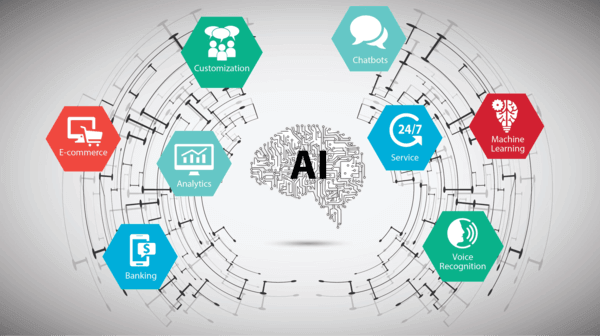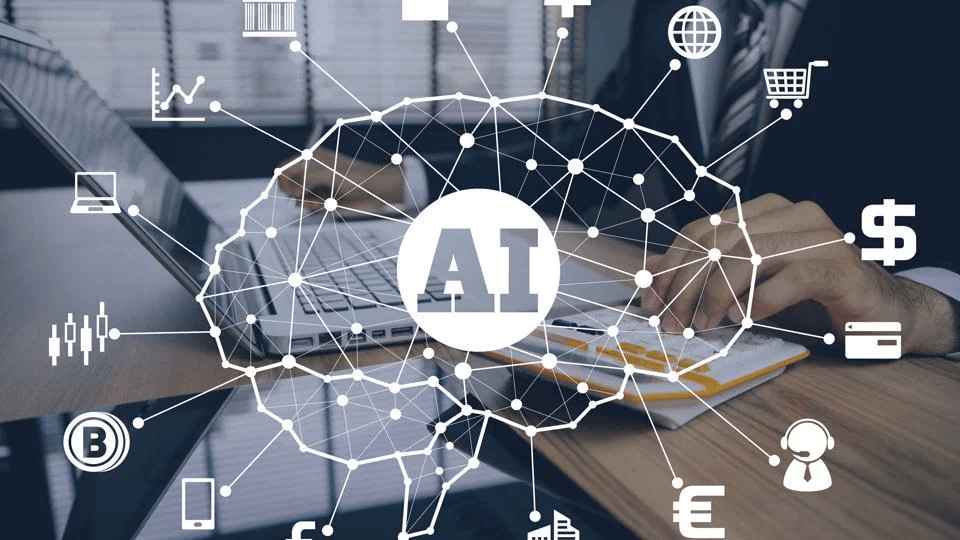
The world of cybersecurity is like a never-ending game of cat and mouse, with hackers constantly evolving their techniques to breach digital fortresses. To stay one step ahead, organizations are turning to artificial intelligence (AI) to bolster their defenses. But what does this mean for the job market in cybersecurity governance? How are roles evolving in this AI-enhanced era of security management? Buckle up, because we’re about to explore the exciting landscape of AI-driven cybersecurity roles!
The Rise of AI in Cybersecurity
Before diving into the job market, let’s understand why AI is making waves in cybersecurity. Picture this: AI as your digital sentinel, tirelessly monitoring networks, detecting anomalies, and thwarting attacks before they even start. It’s no sci-fi fantasy; AI is doing just that. Machine learning algorithms analyze vast datasets, identifying patterns that human eyes might miss.
But how does AI actually enhance security management?
Here’s the lowdown: AI fortifies cybersecurity through:
- Threat Detection: AI algorithms detect unusual patterns or behaviors, flagging potential threats in real-time.
- Incident Response: Automation streamlines incident response, reducing downtime and minimizing damage.
- User Behavior Analysis: AI tracks user activities to spot deviations that could indicate malicious intent.
- Vulnerability Management: Identifying and patching vulnerabilities before attackers exploit them.
With AI playing such a pivotal role, it’s no surprise that the job market in cybersecurity governance is evolving rapidly.
Cybersecurity Governance Roles: Old vs. New
Let’s take a look at how traditional cybersecurity roles are morphing into AI-powered positions.
Security Analysts
Old School: Security analysts used to sift through logs manually, searching for suspicious activities.
Now: AI-powered security analysts rely on machine learning to automate this process. They analyze logs faster and more accurately, freeing up human analysts to focus on complex threats.
Threat Hunters
Old School: Threat hunters followed hunches and conducted manual investigations.
Now: AI-driven threat hunters use predictive analytics to proactively seek out vulnerabilities and threats. It’s like having a cyber-bloodhound on steroids.
Incident Responders
Old School: Incident responders scrambled to contain breaches after they occurred.
Now: AI-enhanced incident response systems can isolate affected areas in real-time, minimizing damage and downtime.
Security Engineers
Old School: Security engineers designed and maintained security systems.
Now: They’re working hand-in-hand with AI to build robust, adaptive security infrastructures.
Security Architects
Old School: Security architects designed static security protocols.
Now: They’re creating dynamic, AI-driven security ecosystems that learn and adapt to new threats.
The Skill Set of Tomorrow’s Cybersecurity Professional

So, what skills are in demand for those eyeing a career in AI-enhanced cybersecurity governance?
- Data Analysis: AI generates massive datasets. Professionals must excel at extracting insights from this data to spot threats and fine-tune security strategies.
- Machine Learning: Understanding how machine learning algorithms operate is crucial. This knowledge helps professionals harness AI’s power effectively.
- Cybersecurity Fundamentals: Even with AI, a strong grasp of cybersecurity fundamentals remains essential. Knowing how attacks work is crucial to building effective defense strategies.
- Problem Solving: Cybersecurity pros need sharp problem-solving skills to adapt to new threats and vulnerabilities.
- Communication: Being able to convey complex security issues to non-technical stakeholders is key. Cybersecurity is a team effort, and effective communication is the glue that holds it together.
Where to Find These Roles
You’re probably wondering where you can snag one of these AI-imbued cybersecurity gigs, right? Here’s a list of potential employers:
| Company | Role | Location |
| AI Security Analyst | Mountain View, CA | |
| Microsoft | AI Threat Hunter | Redmond, WA |
| IBM | AI Incident Responder | Armonk, NY |
| Amazon Web Services | AI Security Engineer | Seattle, WA |
| Palo Alto Networks | AI Security Architect | Santa Clara, CA |
| Deloitte | AI Cybersecurity Consultant | Various Locations |
| Cisco Systems | AI Network Security Engineer | San Jose, CA |
The Future of Cybersecurity Governance
As AI continues to evolve, so too will the landscape of cybersecurity governance. But the question remains: what’s next?
- AI Ethics and Governance: With AI making critical security decisions, ethical concerns arise. Professionals versed in AI ethics will play pivotal roles in shaping responsible AI governance.
- Continuous Learning: Cybersecurity pros must be lifelong learners. Staying updated on the latest AI advancements is non-negotiable.
- Collaboration: Cybersecurity is a team sport. Professionals need to collaborate across disciplines to tackle ever-evolving threats.
- Adaptability: Flexibility is key. The ability to pivot and adapt to new technologies and threats is what will keep professionals relevant.
AI and the Job Market: A Match Made in Cybersecurity Heaven

The integration of AI into cybersecurity governance isn’t just about adding another layer of technology. It’s about enhancing human capabilities, automating routine tasks, and enabling security professionals to focus on what truly matters – safeguarding digital assets.
But what does this mean for job seekers and those already in the field? It means opportunities galore! As organizations recognize the paramount importance of AI in cybersecurity, they are actively seeking skilled professionals to join their ranks.
What can you expect in the AI-infused job market?
- Increased Demand: The demand for AI-savvy cybersecurity experts is skyrocketing. Organizations across industries are expanding their security teams to integrate AI-driven solutions effectively.
- Competitive Salaries: With specialized skills in AI and cybersecurity, professionals can command competitive salaries. The more proficient you are, the more valuable you become.
- Diverse Work Environments: AI-enhanced security isn’t limited to tech giants. Companies in finance, healthcare, retail, and more are all investing in AI-driven cybersecurity.
- Room for Growth: The field is dynamic, with opportunities for advancement and specialization. Whether you’re interested in AI ethics, threat hunting, or incident response, there’s a path for you.
- Global Opportunities: The need for cybersecurity knows no borders. Professionals with AI skills are in demand worldwide, opening doors to international career opportunities.
What steps can you take to thrive in this market?
- Skill Enhancement: Continuously upgrade your skills in AI, machine learning, and cybersecurity to stay relevant.
- Certifications: Pursue certifications like CISSP (Certified Information Systems Security Professional) and CEH (Certified Ethical Hacker) to boost your credibility.
- Networking: Join cybersecurity communities and attend conferences to build connections in the industry.
- Stay Informed: Keep a finger on the pulse of AI advancements and emerging threats through industry publications and research.
- Adaptability: Embrace change and be ready to pivot as the cybersecurity landscape evolves.
In conclusion, the AI job market in cybersecurity governance is a land of promise and innovation. It’s where the digital warriors of today become the cyber guardians of tomorrow. As AI continues to transform the cybersecurity landscape, professionals who adapt and thrive in this evolving field will find themselves at the forefront of a digital revolution, defending against the ever-persistent forces of cyberthreats. So, are you ready to join the ranks of AI-enhanced cybersecurity professionals? The future awaits!
Frequently Asked Questions (FAQs) – AI Job Market in Cybersecurity Governance
Q1: What is the role of AI in cybersecurity governance?
A1: AI plays a pivotal role in cybersecurity governance by enhancing threat detection, automating incident response, analyzing user behavior, and managing vulnerabilities. It acts as a digital sentinel, safeguarding digital assets and networks.
Q2: How are traditional cybersecurity roles evolving in the age of AI?
A2: Traditional cybersecurity roles are evolving to incorporate AI-driven tools and processes. For instance, security analysts now rely on AI to automate log analysis, while incident responders use AI to isolate affected areas in real-time. This allows professionals to focus on complex threats.
Q3: What skills are in demand for AI-enhanced cybersecurity governance roles?
A3: In-demand skills include data analysis, machine learning expertise, strong cybersecurity fundamentals, problem-solving abilities, and effective communication. These skills are essential for professionals to excel in the AI-driven cybersecurity landscape.
Q4: Where can I find AI-enhanced cybersecurity job opportunities?
A4: You can find AI-enhanced cybersecurity job opportunities at tech giants like Google, Microsoft, IBM, and Amazon Web Services. Additionally, consulting firms like Deloitte and cybersecurity-focused companies like Palo Alto Networks and Cisco Systems offer such roles.
Q5: What does the future hold for cybersecurity governance in the age of AI?
A5: The future of cybersecurity governance will involve increased focus on AI ethics and governance, continuous learning, collaboration across disciplines, and adaptability to new technologies and threats. The field will continue to evolve to address emerging challenges and opportunities.
Q6: How can I thrive in the AI-infused job market for cybersecurity governance roles?
A6: To thrive in this job market, continuously enhance your skills, pursue relevant certifications, build a professional network, stay informed about AI advancements and emerging threats, and embrace adaptability to navigate the evolving landscape.
Q7: Are there global opportunities in AI-enhanced cybersecurity roles?
A7: Yes, there are global opportunities in AI-enhanced cybersecurity roles. The demand for cybersecurity professionals with AI skills transcends borders, offering the possibility of international career opportunities in various industries and locations.
Q8: What are the benefits of a career in AI-enhanced cybersecurity governance?
A8: A career in AI-enhanced cybersecurity governance offers increased demand for your expertise, competitive salaries, diverse work environments across industries, room for growth and specialization, and the chance to be at the forefront of defending against cyberthreats in a dynamic field.
Q9: How does AI contribute to cybersecurity ethics and governance?
A9: AI contributes to cybersecurity ethics and governance by necessitating responsible AI usage in security decision-making. Professionals versed in AI ethics play crucial roles in ensuring that AI is used ethically and responsibly in cybersecurity operations.
Q10: Can individuals from non-technical backgrounds enter the AI-enhanced cybersecurity field?
A10: Yes, individuals from non-technical backgrounds can enter the AI-enhanced cybersecurity field by pursuing training and certifications in relevant areas. Effective communication skills and an understanding of cybersecurity fundamentals are valuable assets in this field, even for non-technical professionals.